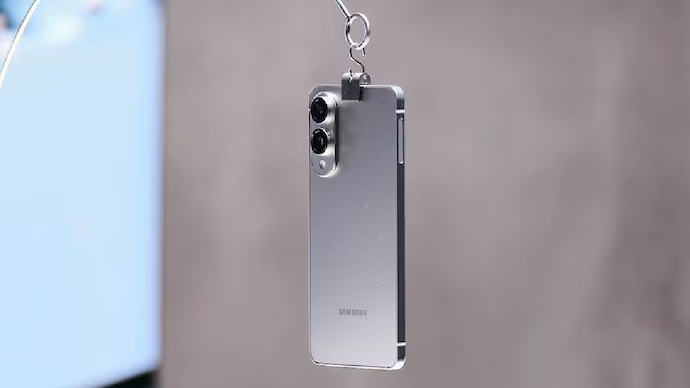On Tuesday, Samsung unveiled its latest high-end device, the Galaxy S25 Edge, a remarkably slim smartphone measuring just 5.8 millimeters in thickness and weighing 163 grams, making it one of the thinnest devices on the market. The phone is priced starting at $1,099 and will be available for purchase on May 30. This launch comes shortly after the company’s annual flagship event in January, where the S25 series was introduced. It is uncommon for Samsung to release a new high-end device so soon after a major launch, as the typical timeline for its newest foldable phones is mid-year. However, the timing underscores Samsung’s strategy to capitalize on the success of the S25 range while navigating increasing competition from Chinese manufacturers and an uncertain global economic environment.
Samsung’s mobile division reported strong revenue and profit growth in the first quarter, driven by solid sales of its S25 series. Despite this success, the company faces a potential slowdown in smartphone demand in the second quarter, attributed to seasonal trends and the global tariff situation. U.S. tariffs, which were implemented in April and later paused, have had an impact on companies like Samsung, although certain products, such as smartphones, were exempted. This uncertainty, coupled with rising competition from Chinese companies, has prompted Samsung to act swiftly with the launch of the S25 Edge.
The S25 Edge features a 6.7-inch display, similar to the Galaxy S25+, but is thinner and lighter, designed to appeal to consumers who prefer flagship-level performance without the bulk of traditional smartphones. The device also boasts a dual-camera system and advanced AI capabilities. Thin designs have become a growing trend in the smartphone industry, and Samsung is positioning itself as a leader in this space. Analysts predict that “thin” will be a dominant theme in the second half of 2025, with competitors like Apple and Chinese brands expected to follow suit with their own slim devices. Samsung’s early move with the S25 Edge appears to be a preemptive strike against its rivals, including Apple, which is rumored to be preparing a thin version of its iPhone 17.
READ MORE:
